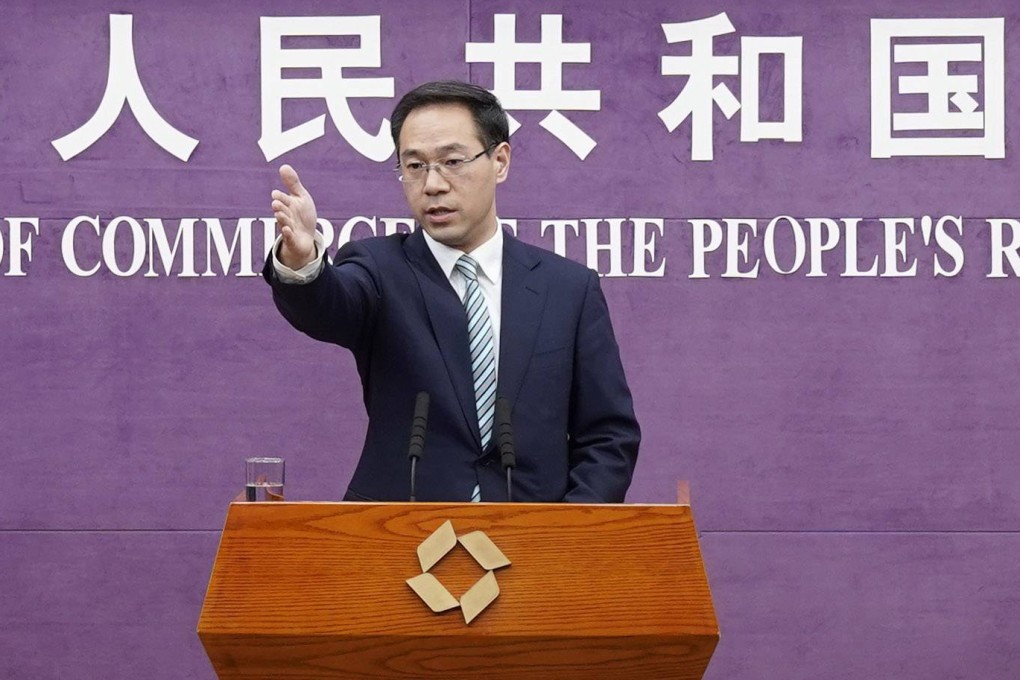Beijing to blacklist ‘unreliable’ foreign entities that ‘hurt interests of Chinese firms’
- Commerce ministry says it will publish a list of businesses or individuals deemed to have violated market rules or taken ‘discriminatory measures’
- Hours after announcement, state broadcaster CCTV airs commentary saying China ‘does not want a war but it is not afraid to fight’

The Ministry of Commerce said on Friday that it would blacklist foreign businesses or individuals that violated market rules and contractual obligations, or took “discriminatory measures” to hurt Chinese business rights and interests, as well as national security and interests.
Specific measures for those on the list would be revealed “in the near future”, said ministry spokesman Gao Feng.
Gao said the “unreliable” blacklist would be based on China’s foreign trade, anti-monopoly and national security laws, and it would target entities that had blocked Chinese businesses out of non-commercial concerns.
Hours after the announcement, state broadcaster CCTV’s prime time news aired a commentary saying that in the ongoing trade war with the US, China “does not want a war but it is not afraid to fight, and it would fight if push came to shove”.